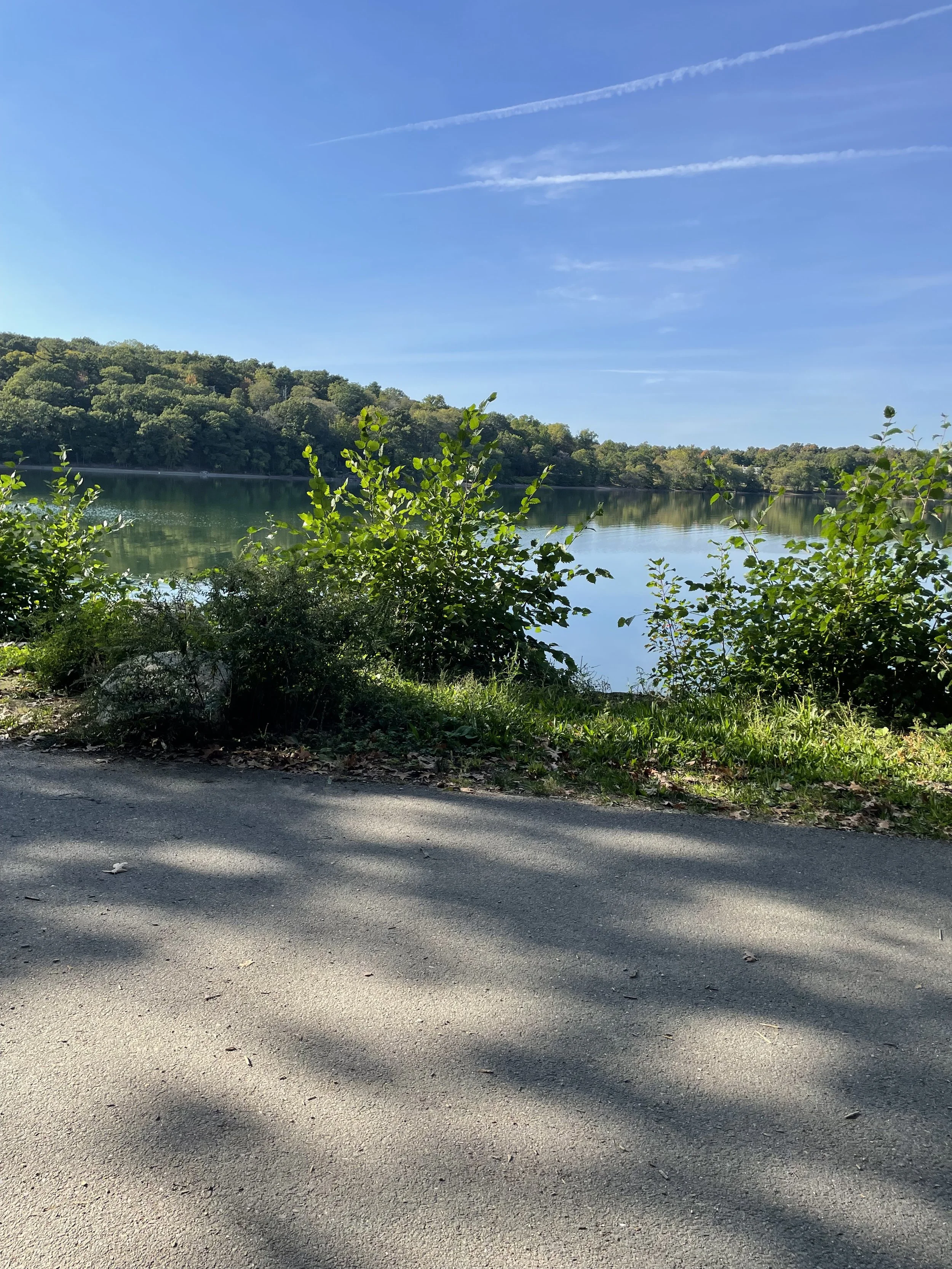🍁 Finding Your Way
Post-Traumatic Growth & Resilience Coaching for Women
Restore🍁 Reconnect🍁 Renew🍁
Post-traumatic growth softly unfolds over time.
It is a season of transition —
moving at your pace, in your time —
“Trauma is not defined by what happened to us —
but by what happens inside us,
especially in the absence of an empathic witness.
Anything that is too much, too soon, or too fast
(or too little for too long)
for our nervous system to handle,
especially if we can’t reach a successful resolution.”
— Peter Levine, PhD
“The gift of healing trauma is that … woundedness becomes a gateway to freedom, healing, and love.”
— Tara Brach, PhD
“In the broken places, the light shines through.”
—Leonard Cohen
What We May Explore
🌱 Trauma-informed mindfulness
A soft turning toward what is here — moment by moment, at your own pace.
Nothing is forced. Awareness unfolds gradually, beginning with noticing sensations and feelings in the body.
As feelings are met with kindness — softly, without judgment — we may begin to feel what is difficult. As the nervous system settles, struggle softens, opening space for ease and joy.
If anything feels overwhelming, attention can return to pleasant or neutral sensations — things that feel supportive to see, hear, touch, smell, or taste — gently grounding you in the safety of this moment.
🧠 How the brain and nervous system guide healing
An integrated lens drawing from Interpersonal Neurobiology and Polyvagal Theory, offering understanding of how connection, nervous system regulation, and mindful awareness work together to support healing — soothing the body, nurturing the heart, steadying the mind, and clarifying purpose.
💛 Somatic (body-based) practices
Simple, body-based exercises offered softly — supporting nervous system regulation and helping restore a sense of safety, balance, and ease.
🤝 Connection in a welcoming community
Growth unfolds through being met — with warmth, kindness, and connection, creating a safe enough space where you can reconnect with yourself, alongside like-minded women. Each one-on-one session and each Finding Your Way circle unfolds in response to individual needs, while honoring the shared rhythm of the group.
“I’m grateful for Esther’s humanity and uniquely skilled guidance…most especially on those days when I am feeling, ‘ I don’t need this.! ‘ I’m learning to have more compassion for myself from her ability to listen and reflect my words back to me. Being truly heard releases the built-up steam in my life. And now, I’m discovering a more fully integrated sense of self-awareness, understanding, and acceptance.” — Kathy
Pricing & Financial Accessibility
I offer both individual coaching sessions and small group circles.
Group offerings support healing in connection and provide a more financially accessible way to engage in this work, while individual sessions offer focused, one-on-one support.
Individual sessions are currently offered at $100 per session.
Group pricing varies by offering. This first 6-week series is offered at a special rate of $140, as I believe in making this work accessible to those navigating life's transitions and healing.
If cost is a barrier, you’re welcome to reach out. Accessibility matters to me, and I’ll do my best to meet you where you are.
Circles of light. Circles of comfort. Circles of healing.
Finding Your Way 🍁
Post-Traumatic Growth & Resilience Circles for Women
Finding Your Way Circles 💫
These small circles are coming together soon.
You’re warmly welcome to join if it feels right. 🐢💛
6-week Circle
Begins Wednesday, February 4: 12:30-1:30 PM EST, 9:30-10:30 AM EST,
6:30-7:30 PM CET
Monthly Circles
First gathering Thursday, February 5: 12:30-1:30 PM EST, 9:30-10:30 AM PST,
6:30-7:30 PM CET
Community can help hold what’s difficult to carry alone.
Healing often unfolds in connection.
As Rachel Naomi Remen reminds us, “We are all healers of each other. The reality is that healing happens between people.”
If you’re curious to learn more, you’re welcome to schedule a free inquiry call.
It’s a gentle space to ask questions, begin to connect, and see whether working together feels like a good fit.
One-on-One Coaching
Sometimes what’s needed is individual connection — a space to be met with care as you navigate strong emotions or moments of uncertainty.
In addition to group circles, one-on-one sessions are available for those who feel drawn to individual support. These sessions offer gentle, attuned presence, grounded in mindfulness and healing science, and shaped around what feels most important for you right now.
Why This Path Matters
“Esther’s class was both powerful and calming. I appreciated the way she weaves mindfulness with an understanding of the brain and nervous system. Her gentle vagal toning practice offered a meaningful ‘aha’ moment that supported my own healing.”
— Sasha
I draw on mindfulness and the healing sciences to offer soft practices and grounded understanding that support the nervous system’s natural return to safety, connection, and ease. Healing is not about fixing ourselves — it’s about restoring and reconnecting with who we already are.
Through my own trauma recovery, I learned how powerful it can be to weave mindful awareness together with an understanding of how our nervous system works. When these are held together, they offer support that is soothing, regulating, and steadying — allowing healing to unfold at its own pace. I often think of this as medicine for the nervous system.
As we begin to feel safe-enough, the body softens. The mind quiets. And the whole system — brain, heart, breath, gut, and nervous system — can gently shift into a state that supports healing and growth.
“Trauma is not what happens to us, but what we hold inside in the absence of an empathic witness.”
— Peter Levine, PhD
An Invitation
You’re warmly invited to watch — or simply listen — to a brief Metta (loving-kindness) practice I offered in Dr. Arielle Schwartz’s yoga class. A practice that is particularly soothing when when your mind feels busy and full of thoughts.
You may be noticing:
Feeling both anxious and quietly hopeful about what’s next
Waves of overwhelm, or a sense that the world doesn’t always feel safe
Uncertainty about where — or how — to begin
Feeling unsettled by small, everyday situations
Longing to feel more at ease in your body and in your connections
If any of this resonates, know that these are common human experiences. Trauma leads the nervous system to react quickly as a way of protecting us. These instinctual reactions are rooted in survival, even when they pull us away from ease, choice, and connection.
Softly noticing these protective reactions — and shifting toward responding with increasing awareness in the present moment, in small amounts, as you are ready — supports healing and well-being. As we notice a tangled thread, we open space for it to softly untangle, to be understood, and to gradually integrate.
If you’d like to explore the science and practices that support nervous system regulation, resilience, and well-being, you’re warmly welcome to visit the Resource Library.
A Window Into My Story
“Mindfulness is about being fully awake in our lives. It is about perceiving the exquisite vividness of each moment. We feel more alive.
We also gain immediate access to our own powerful inner resources for insight, transformation and healing.”
– Jon Kabat Zinn
A Glimpse Into My Story
From my own trauma recovery, I learned how mindfully soothing and regulating the nervous system creates space — space to feel what we are feeling as it arises, and to become aware of it with kindness.
In that space, agency begins to return. Calm and curiosity become possible. And from there, happiness, purpose, and a sense of fulfillment can slowly re-emerge.
More than 35 years ago, a mindfulness workshop with Jon Kabat-Zinn shifted the course of my life. Over time, I deepened my practice, studying mindfulness, Jewish contemplative traditions, and trauma-informed healing science. These teachings supported my return to myself — to my strengths, my innate wholeness, and capacity for connection.
My journey has also carried me through waves of grief, fear, shame, illness, and early experiences of disconnection. To embrace the words of Tara Brach the woundedness gradually became my gateway to freedom, healing and love. Within those experiences, I reclaimed the seeds of resilience — compassion, courage, and a deep capacity for connection — qualities that are my inherent goodness and wholeness, even when they were clouded by trauma.
For the last several decades, I have continued to study and practice healing approaches that support this process — healing sciences that help us reconnect with ourselves and with our inherent goodness and wholeness.
Today, I walk alongside women navigating life transitions, loss, or trauma, supporting them as they gently rediscover their resilience and find their way.
Perhaps this is a time of transition for you, and you may be wondering how to move forward with clarity and self-compassion. Together, we explore mindfulness, somatic practices, and trauma-informed science, softly supporting your reconnection with yourself — at your own pace, in your own time.
It is from my own experience of healing and reconnecting with this wholeness that I created the Finding Your Way Circles.
Art by, Vicky Alvarez







